Table Of Contents
Are dusty, grimy window sills making your home feel less than clean and inviting? You're not alone. Neglected window sills can harbor allergens and reduce the overall appearance of your space. But don't worry - in this article, we'll show you simple and effective ways to clean your window sills and breathe new life into your home. Say goodbye to dust and hello to sparkling windows with these tips!
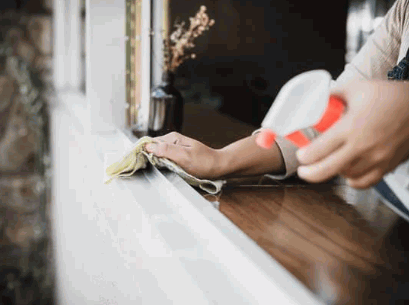
Why Is It Important To Clean Window Sills?
Maintaining a hygienic indoor environment requires regular cleaning of window sills. Neglecting this task can result in the build-up of dust, dirt, and grime, which can harbor allergens, mold spores, and pests. By regularly cleaning window sills, not only will the appearance of windows be enhanced, but it will also contribute to a healthier living space by reducing potential health hazards caused by unclean surfaces.
Dig Deeper: How To Clean Window Glass
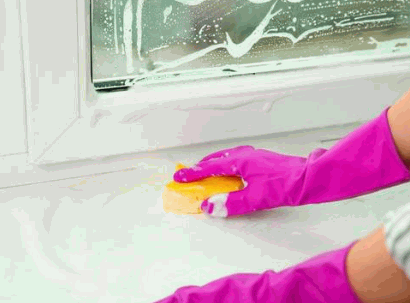
Tools And Materials Needed For Cleaning Window Sills
- Duster
- A vacuum cleaner with a brush attachment
- All-purpose cleaner
- Microfiber cloth
- Cotton swabs
- Old toothbrush
- Bucket of warm, soapy water
Pro-tip: Before cleaning, use a duster to remove loose dirt and debris to make the cleaning process more efficient.
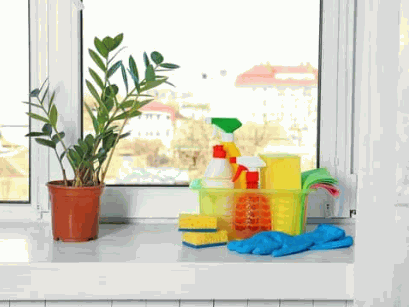
Step-by-Step Guide On How To Clean Window Sills
Cleaning window sills may seem like a daunting task, but with the right approach, it can be a simple and rewarding chore. In this section, we will provide a step-by-step guide on how to clean window sills effectively. From removing debris to drying them off, we will cover each essential step in detail to help you achieve sparkling clean window sills. So, let's get started and make your windows shine with our easy-to-follow cleaning process.
Step 1: Remove Any Loose Debris
- Start by removing any loose debris using a small brush or vacuum cleaner.
Fun fact: Regularly clearing debris from window sills not only prevents dirt buildup but also helps to prevent potential pest infestations.
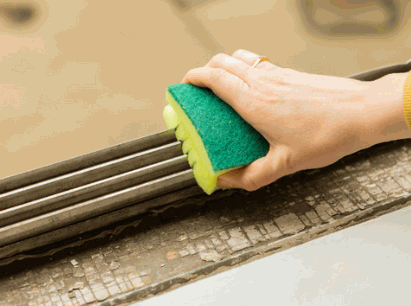
Step 2: Vacuum The Window Sills
- Prepare the vacuum cleaner with a brush attachment.
- Start by vacuuming the sills to remove dust, dirt, and insect debris.
- Pay attention to corners and crevices where debris tends to accumulate.
- Empty the vacuum cleaner to prevent dust and dirt from spreading.
For deeper cleaning, use a damp cloth to wipe the sills after vacuuming.
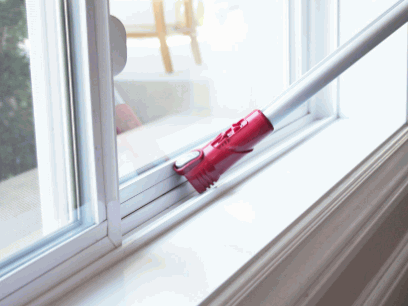
Step 3: Prepare The Cleaning Solution
- Gather the necessary materials such as warm water, dish soap, and a bucket.
- Fill the bucket with warm water and add a small amount of dish soap to create the cleaning solution.
- Stir the mixture until the soap is dissolved, ensuring a well-mixed solution.
Pro-tip: For added freshness, consider adding a few drops of essential oil to the cleaning solution before using it on your window sills.
Step 4: Scrub The Window Sills
- Prepare the cleaning solution by mixing warm water and mild dish soap.
- Dip a soft-bristled brush or cloth into the solution.
- Gently scrub the window sills, paying attention to corners and crevices.
- Rinse the sills with clean water to remove any soapy residue.
- Dry the sills thoroughly with a clean, dry cloth.
Fact: Regular cleaning of window sills prevents the buildup of dirt and mold, promoting a healthier indoor environment.
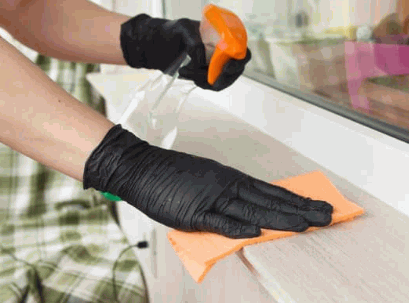
Step 5: Rinse With Clean Water
- After scrubbing the window sills, rinse with clean water to remove any remaining cleaning solution and dirt.
Step 6: Dry The Window Sills
- After rinsing the window sills, use a clean, dry cloth to thoroughly dry the surface, preventing water spots or damage.
In ancient Rome, wealthy citizens would use soft linen cloths to dry their window sills to maintain cleanliness and elegance.
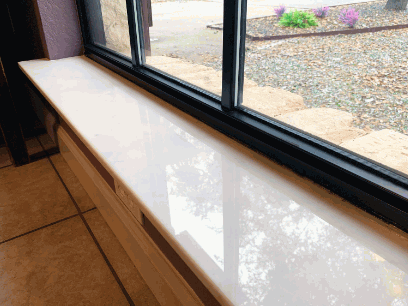
Tips For Maintaining Clean Window Sills
- Regular cleaning: Keep your window sills clean by wiping them with a damp cloth weekly to remove dust and dirt.
- Deep cleaning: For more thorough cleaning, use a mild soap solution and a sponge to scrub the sills every few months.
- Preventive measures: To prevent dust and water from entering, consider placing a barrier such as weather stripping.
- Inspect for damage: It's important to regularly check for cracks or signs of decay on your window sills and repair them promptly.
Common Mistakes To Avoid When Cleaning Window Sills
- Avoid making common mistakes when cleaning your window sills.
- Do not use harsh chemicals that can damage the material of the sills.
- Make sure to regularly clean your sills to prevent the accumulation of dirt and grime.
- After cleaning, be sure to thoroughly dry the sills to prevent mold and mildew growth.
- Pay attention to the corners and edges where dirt tends to build up.
In 1984, a group of window cleaners in New York set a record by cleaning 65,000 windows in 11 days, demonstrating remarkable dedication to their craft.
Alternative Methods For Cleaning Window Sills
While traditional window cleaning methods involve using soap and water, there are alternative methods for cleaning window sills that can be just as effective. In this section, we will discuss two methods that utilize common household items: vinegar and baking soda. We will also explore the option of using commercial window cleaning products for those who prefer a more convenient approach. By the end, you will have a variety of options to choose from for keeping your window sills sparkling clean.
Using Vinegar And Baking Soda
- Mix equal parts of vinegar and water in a spray bottle.
- Sprinkle baking soda over the window sills.
- Spray the vinegar and baking soda solution onto the window sills.
- Allow the solution to fizz for a few minutes to loosen dirt and grime.
- Scrub the window sills with a brush or sponge.
- Rinse with water and dry thoroughly.
Using vinegar and baking soda as a natural cleaning solution not only effectively cleans window sills but also helps minimize environmental impact.
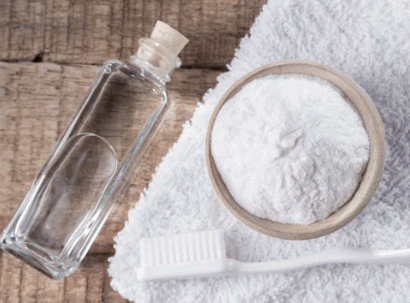
Using Commercial Window Cleaning Products
To simplify the cleaning process, consider using commercial window cleaning products. Look for reputable brands that offer non-toxic, streak-free solutions for the best results.
When using these products, always follow the provided instructions to achieve optimal cleanliness without causing damage to the window sills or surrounding surfaces.
Pro-tip: Before using any commercial cleaning product, test it on a small, inconspicuous area of the window sills to ensure compatibility and prevent potential damage.


